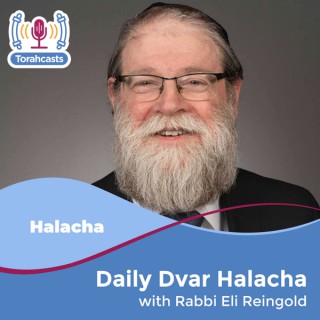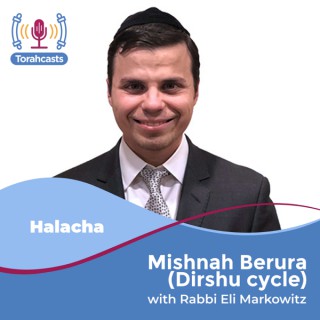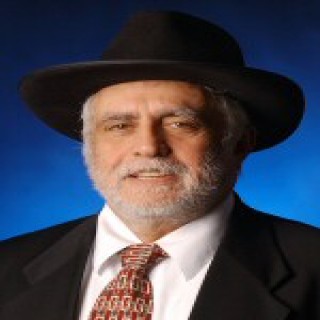Podcasts about Siman
- 137PODCASTS
- 13,015EPISODES
- 16mAVG DURATION
- 5WEEKLY NEW EPISODES
- Feb 25, 2026LATEST
POPULARITY
Categories
Best podcasts about Siman
Latest news about Siman
- The Shocking Truth About Alternative Healing – What the Torah Really Says! The Yeshiva World - Jul 14, 2025
- Chef’s Table at The Hub: Ben and Zikki Siman-Tov on Eat Small Plates TheaterMania - Jul 3, 2025
- chain + siman and modomanera revive modernist landmark hotel avándaro in mexico’s forest architecture – designboom | architecture & design magazine - Apr 19, 2025
- CVE-2024-50610 | GNU Scientific Library up to 2.8 siman/siman.c gsl_siman_solve_many allocation of resources (Nessus ID 216826) VulDB Updates - Feb 26, 2025
- Siman Lamp by Urbi et Orbi | Architonic New products by Architonic - Jun 21, 2024
Latest podcast episodes about Siman
siman 363:31-33 in Chelek Daled- Hilchos Hotza'ah V'hachnasah b'shabbos by Rabbi Tzvi Thaler
S0691 - Meleches Shabbos - (Klal 30 Siman 7-8) - Tzad - 29 - Using Traps - 3_ Introduction to Siman 8 - 1
Mishna Berura - Siman 562: Seif 3-6 - Hilchos Ta'anis
Mishnah Berurah - Siman 562: Seif 3-6 סימן תקס"ב סעיף ג-ו Hilchos Ta'anis -דין קבלת התענית Rabbi Mordechai Fishman Purchase The Laws and Customs of Krias HaTorah, by Rabbi Mordechai Fishman here: www.kriashatorah.com www.orachchaim.com For sponsorship opportunities contact: www.rabbifishman.com or email: rabbifishman@gmail.com #mishna berura
Mishnah Berurah Yomi: Siman 13 seif 1-2 by Rabbi Avi Zakutinsky
What Is Said For Dreams?
siman 363:30 in Chelek Daled- Hilchos Hotza'ah V'hachnasah b'shabbos by Rabbi Tzvi Thaler
Mishna Berura - Siman 562: Seif 1-2 - Hilchos Ta'anis
Mishnah Berurah - Siman 562: Seif 1-2 סימן תקס"ב סעיף א-ב Hilchos Ta'anis -דין קבלת התענית Rabbi Mordechai Fishman Purchase The Laws and Customs of Krias HaTorah, by Rabbi Mordechai Fishman here: www.kriashatorah.com www.orachchaim.com For sponsorship opportunities contact: www.rabbifishman.com or email: rabbifishman@gmail.com #mishna berura
Do We Remove Him?
siman 363:28-29 in Chelek Daled- Hilchos Hotza'ah V'hachnasah b'shabbos by Rabbi Tzvi Thaler
Mishnah Berurah Yomi: Siman 12 by Rabbi Avi Zakutinsky
Mishnah Berurah Yomi: Siman 11 Seif 15 by Rabbi Avi Zakutinsky
siman 363:26C-27 in Chelek Daled- Hilchos Hotza'ah V'hachnasah b'shabbos by Rabbi Tzvi Thaler
When Is It Done?
Learn all aspects of Halacha through our 10 minutes a day Kitzur Shulchan Aruch Yomi with Rabbi Ya'akov Trump. This series is kindly sponsored by the Moshe Group & CA In the zechus of רבקה בילה בת נחמה שיפרה And in honor of Rabbi Trump Photo Credit BigNazik Adobe Stock
Learn all aspects of Halacha through our 10 minutes a day Kitzur Shulchan Aruch Yomi with Rabbi Ya'akov Trump. This series is kindly sponsored by the Moshe Group & CA In the zechus of רבקה בילה בת נחמה שיפרה And in honor of Rabbi Trump Photo by Boris Kuznets
Learn all aspects of Halacha through our 10 minutes a day Kitzur Shulchan Aruch Yomi with Rabbi Ya'akov Trump. This series is kindly sponsored by the Moshe Group & CA In the zechus of רבקה בילה בת נחמה שיפרה And in honor of Rabbi Trump Photo by Boris Kuznets
Learn all aspects of Halacha through our 10 minutes a day Kitzur Shulchan Aruch Yomi with Rabbi Ya'akov Trump. This series is kindly sponsored by the Moshe Group & CA In the zechus of רבקה בילה בת נחמה שיפרה And in honor of Rabbi Trump Photo by Boris Kuznets
Learn all aspects of Halacha through our 10 minutes a day Kitzur Shulchan Aruch Yomi with Rabbi Ya'akov Trump. This series is kindly sponsored by the Moshe Group & CA In the zechus of רבקה בילה בת נחמה שיפרה And in honor of Rabbi Trump Photo by Boris Kuznets
Learn all aspects of Halacha through our 10 minutes a day Kitzur Shulchan Aruch Yomi with Rabbi Ya'akov Trump. This series is kindly sponsored by the Moshe Group & CA In the zechus of רבקה בילה בת נחמה שיפרה And in honor of Rabbi Trump Photo Credit BigNazik Adobe Stock
Learn all aspects of Halacha through our 10 minutes a day Kitzur Shulchan Aruch Yomi with Rabbi Ya'akov Trump. This series is kindly sponsored by the Moshe Group & CA In the zechus of רבקה בילה בת נחמה שיפרה And in honor of Rabbi Trump Photo Credit BigNazik Adobe Stock
Learn all aspects of Halacha through our 10 minutes a day Kitzur Shulchan Aruch Yomi with Rabbi Ya'akov Trump. This series is kindly sponsored by the Moshe Group & CA In the zechus of רבקה בילה בת נחמה שיפרה And in honor of Rabbi Trump Photo Credit BigNazik Adobe Stock
Siman 72 - Power of Shabbos and Importance of Preparation (Part 1)
Learn all aspects of Halacha through our 10 minutes a day Kitzur Shulchan Aruch Yomi with Rabbi Ya'akov Trump. This series is kindly sponsored by the Moshe Group & CA In the zechus of רבקה בילה בת נחמה שיפרה And in honor of Rabbi Trump Photo Credit BigNazik Adobe Stock
Learn all aspects of Halacha through our 10 minutes a day Kitzur Shulchan Aruch Yomi with Rabbi Ya'akov Trump. This series is kindly sponsored by the Moshe Group & CA In the zechus of רבקה בילה בת נחמה שיפרה And in honor of Rabbi Trump Photo Credit BigNazik Adobe Stock
Learn all aspects of Halacha through our 10 minutes a day Kitzur Shulchan Aruch Yomi with Rabbi Ya'akov Trump. This series is kindly sponsored by the Moshe Group & CA In the zechus of רבקה בילה בת נחמה שיפרה And in honor of Rabbi Trump Photo Credit BigNazik Adobe Stock
Siman 91 - Minor Ailments and non life-threatening illness on Shabbos
Learn all aspects of Halacha through our 10 minutes a day Kitzur Shulchan Aruch Yomi with Rabbi Ya'akov Trump. This series is kindly sponsored by the Moshe Group & CA In the zechus of רבקה בילה בת נחמה שיפרה And in honor of Rabbi Trump Photo Credit BigNazik Adobe Stock
Learn all aspects of Halacha through our 10 minutes a day Kitzur Shulchan Aruch Yomi with Rabbi Ya'akov Trump. This series is kindly sponsored by the Moshe Group & CA In the zechus of רבקה בילה בת נחמה שיפרה And in honor of Rabbi Trump Photo Credit BigNazik Adobe Stock
Learn all aspects of Halacha through our 10 minutes a day Kitzur Shulchan Aruch Yomi with Rabbi Ya'akov Trump. This series is kindly sponsored by the Moshe Group & CA In the zechus of רבקה בילה בת נחמה שיפרה And in honor of Rabbi Trump Photo Credit BigNazik Adobe Stock
Learn all aspects of Halacha through our 10 minutes a day Kitzur Shulchan Aruch Yomi with Rabbi Ya'akov Trump. This series is kindly sponsored by the Moshe Group & CA In the zechus of רבקה בילה בת נחמה שיפרה And in honor of Rabbi Trump Photo Credit BigNazik Adobe Stock
Learn all aspects of Halacha through our 10 minutes a day Kitzur Shulchan Aruch Yomi with Rabbi Ya'akov Trump. This series is kindly sponsored by the Moshe Group & CA In the zechus of רבקה בילה בת נחמה שיפרה And in honor of Rabbi Trump Photo Credit BigNazik Adobe Stock
Learn all aspects of Halacha through our 10 minutes a day Kitzur Shulchan Aruch Yomi with Rabbi Ya'akov Trump. This series is kindly sponsored by the Moshe Group & CA In the zechus of רבקה בילה בת נחמה שיפרה And in honor of Rabbi Trump Photo Credit BigNazik Adobe Stock
Learn all aspects of Halacha through our 10 minutes a day Kitzur Shulchan Aruch Yomi with Rabbi Ya'akov Trump. This series is kindly sponsored by the Moshe Group & CA In the zechus of רבקה בילה בת נחמה שיפרה And in honor of Rabbi Trump Photo Credit BigNazik Adobe Stock
Learn all aspects of Halacha through our 10 minutes a day Kitzur Shulchan Aruch Yomi with Rabbi Ya'akov Trump. This series is kindly sponsored by the Moshe Group & CA In the zechus of רבקה בילה בת נחמה שיפרה And in honor of Rabbi Trump Photo Credit BigNazik Adobe Stock
Learn all aspects of Halacha through our 10 minutes a day Kitzur Shulchan Aruch Yomi with Rabbi Ya'akov Trump. This series is kindly sponsored by the Moshe Group & CA In the zechus of רבקה בילה בת נחמה שיפרה And in honor of Rabbi Trump Photo Credit BigNazik Adobe Stock
Learn all aspects of Halacha through our 10 minutes a day Kitzur Shulchan Aruch Yomi with Rabbi Ya'akov Trump. This series is kindly sponsored by the Moshe Group & CA In the zechus of רבקה בילה בת נחמה שיפרה And in honor of Rabbi Trump Photo Credit BigNazik Adobe Stock
Learn all aspects of Halacha through our 10 minutes a day Kitzur Shulchan Aruch Yomi with Rabbi Ya'akov Trump. This series is kindly sponsored by the Moshe Group & CA In the zechus of רבקה בילה בת נחמה שיפרה And in honor of Rabbi Trump Photo Credit BigNazik Adobe Stock
Learn all aspects of Halacha through our 10 minutes a day Kitzur Shulchan Aruch Yomi with Rabbi Ya'akov Trump. This series is kindly sponsored by the Moshe Group & CA In the zechus of רבקה בילה בת נחמה שיפרה And in honor of Rabbi Trump Photo Credit BigNazik Adobe Stock
Learn all aspects of Halacha through our 10 minutes a day Kitzur Shulchan Aruch Yomi with Rabbi Ya'akov Trump. This series is kindly sponsored by the Moshe Group & CA In the zechus of רבקה בילה בת נחמה שיפרה And in honor of Rabbi Trump Photo Credit BigNazik Adobe Stock
Learn all aspects of Halacha through our 10 minutes a day Kitzur Shulchan Aruch Yomi with Rabbi Ya'akov Trump. This series is kindly sponsored by the Moshe Group & CA In the zechus of רבקה בילה בת נחמה שיפרה And in honor of Rabbi Trump Photo Credit BigNazik Adobe Stock
Learn all aspects of Halacha through our 10 minutes a day Kitzur Shulchan Aruch Yomi with Rabbi Ya'akov Trump. This series is kindly sponsored by the Moshe Group & CA In the zechus of רבקה בילה בת נחמה שיפרה And in honor of Rabbi Trump Photo Credit BigNazik Adobe Stock
Learn all aspects of Halacha through our 10 minutes a day Kitzur Shulchan Aruch Yomi with Rabbi Ya'akov Trump. This series is kindly sponsored by the Moshe Group & CA In the zechus of רבקה בילה בת נחמה שיפרה And in honor of Rabbi Trump Photo Credit BigNazik Adobe Stock
Learn all aspects of Halacha through our 10 minutes a day Kitzur Shulchan Aruch Yomi with Rabbi Ya'akov Trump. This series is kindly sponsored by the Moshe Group & CA In the zechus of רבקה בילה בת נחמה שיפרה And in honor of Rabbi Trump Photo Credit BigNazik Adobe Stock
Learn all aspects of Halacha through our 10 minutes a day Kitzur Shulchan Aruch Yomi with Rabbi Ya'akov Trump. This series is kindly sponsored by the Moshe Group & CA In the zechus of רבקה בילה בת נחמה שיפרה And in honor of Rabbi Trump Photo Credit BigNazik Adobe Stock
Siman 72 - Power of Shabbos and Importance of Preparation (Part 2)
Learn all aspects of Halacha through our 10 minutes a day Kitzur Shulchan Aruch Yomi with Rabbi Ya'akov Trump. This series is kindly sponsored by the Moshe Group & CA In the zechus of רבקה בילה בת נחמה שיפרה And in honor of Rabbi Trump Photo Credit BigNazik Adobe Stock
Learn all aspects of Halacha through our 10 minutes a day Kitzur Shulchan Aruch Yomi with Rabbi Ya'akov Trump. This series is kindly sponsored by the Moshe Group & CA In the zechus of רבקה בילה בת נחמה שיפרה And in honor of Rabbi Trump Photo Credit BigNazik Adobe Stock
Learn all aspects of Halacha through our 10 minutes a day Kitzur Shulchan Aruch Yomi with Rabbi Ya'akov Trump. This series is kindly sponsored by the Moshe Group & CA In the zechus of רבקה בילה בת נחמה שיפרה And in honor of Rabbi Trump Photo Credit BigNazik Adobe Stock
Learn all aspects of Halacha through our 10 minutes a day Kitzur Shulchan Aruch Yomi with Rabbi Ya'akov Trump. This series is kindly sponsored by the Moshe Group & CA In the zechus of רבקה בילה בת נחמה שיפרה And in honor of Rabbi Trump Photo Credit BigNazik Adobe Stock
Learn all aspects of Halacha through our 10 minutes a day Kitzur Shulchan Aruch Yomi with Rabbi Ya'akov Trump. This series is kindly sponsored by the Moshe Group & CA In the zechus of רבקה בילה בת נחמה שיפרה And in honor of Rabbi Trump Photo Credit BigNazik Adobe Stock

























































